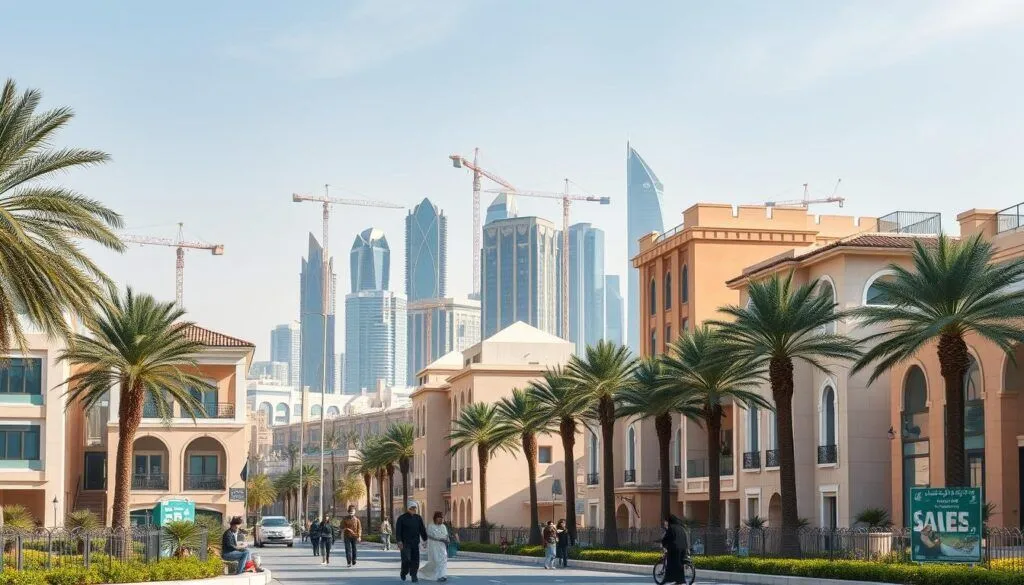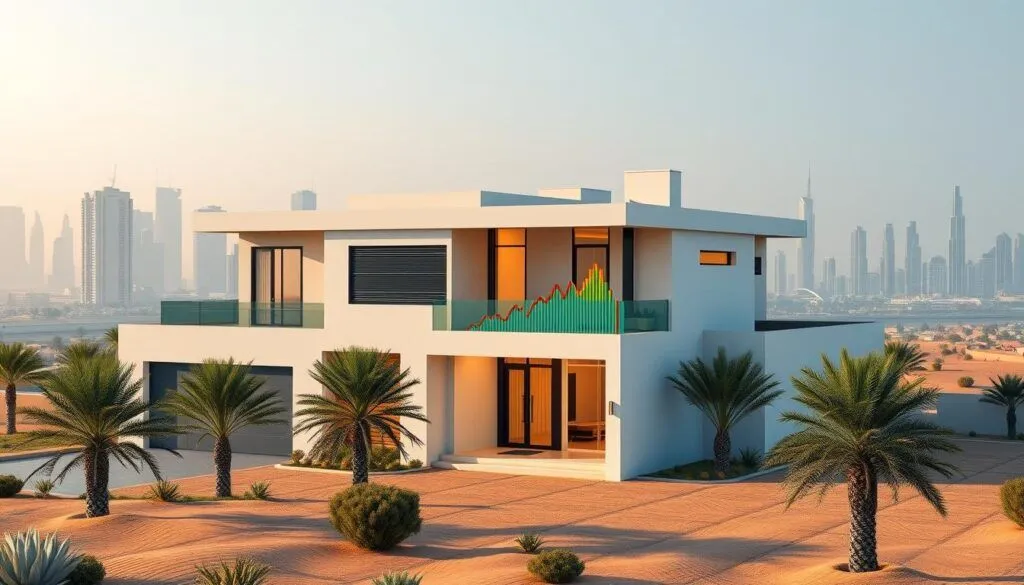Saudi Arabia first-time homebuyers support initiatives have been introduced, allowing citizens to buy homes with lower down payments and access up to 95 percent financing. This decision marks a significant shift in the Kingdom’s housing policy and reflects its Vision 2030 goals to improve living standards and increase the number of Saudi homeowners.
A major step towards Vision 2030
Saudi Arabia has been working to diversify its economy and improve the quality of life for its citizens. One of the main goals of Vision 2030 is to increase homeownership rates among Saudis to 70 percent by 2030. The move to provide Saudi Arabia first-time homebuyers support is a big step toward achieving this target.
Previously, many Saudis found it difficult to enter the housing market because of high upfront costs and strict financing conditions. By allowing lower down payments and providing up to 95 percent financing support, the government is making homeownership more accessible and affordable for young families and first-time buyers.

What exactly is changing
Under the new policy, buyers can now pay a significantly smaller percentage upfront when purchasing a home. Eligible buyers can secure loans covering up to 95 percent of the property value. The scheme specifically targets Saudis who are buying their first home, helping them overcome traditional financial barriers.
This move is expected to stimulate the housing market and encourage more real estate development. By supporting demand, the government hopes to create a healthy, competitive environment that ultimately benefits consumers.

Why is this important for first-time buyers
For many first-time buyers, saving for a large down payment has been one of the biggest obstacles to homeownership. Renting has been the default option for many young Saudis who could not afford to save enough while managing other expenses.
With Saudi Arabia first-time homebuyers support, the barrier is significantly lowered. A lower down payment means buyers can enter the market sooner and start building equity rather than spending on rent. Access to 95 percent financing reduces the financial stress that comes with buying a home, giving young people and growing families more confidence to take this big step.
Expected impact on the real estate market
The decision to support first-time homebuyers is likely to have a positive ripple effect on the entire real estate sector in Saudi Arabia. Experts expect increased demand for housing units as more people will now be able to afford a home. Developers may accelerate projects to meet new demand, and related sectors such as construction materials, interior design, and home appliances may also see growth.
Banks and financial institutions are likely to adjust their lending practices to support this new wave of buyers. The government’s involvement gives financial institutions more confidence in offering higher loan-to-value ratios, which can further drive market momentum.
A closer look at financing options
Before these new changes, buyers typically had to provide a down payment of at least 15 to 20 percent of the home price. For an average home priced at SAR 1 million, this meant a down payment of SAR 150,000 to SAR 200,000. Many families struggled to save this amount.
Now, with Saudi Arabia first-time homebuyers support, buyers only need to put down as little as 5 percent, or SAR 50,000 for a SAR 1 million home. The remaining 95 percent can be financed through government-backed loans or approved financial institutions.
Furthermore, efforts are being made to simplify the application process and make mortgage approvals faster and more transparent. The government has been working closely with local banks to streamline documentation and reduce bureaucracy, ensuring that more people can benefit from these changes.

What are the eligibility criteria
While exact eligibility requirements may vary slightly between banks and regions, the general criteria include that the applicant must be a Saudi citizen and must be purchasing a first home. The applicant should meet minimum income requirements set by the lending institution and have a good credit standing.
In some cases, additional incentives or subsidies may be available for families, people with disabilities, or those living in specific regions as part of broader social support programs.
Supporting economic diversification
This new housing support policy is part of a larger plan to diversify Saudi Arabia’s economy beyond oil. By creating new opportunities in real estate, finance, and construction, the government aims to reduce reliance on oil revenue and stimulate sustainable economic growth.
Encouraging citizens to own homes also aligns with social stability and national pride. Homeownership tends to strengthen communities, increase civic participation, and improve family well-being. All these factors contribute to a more resilient and prosperous society.
Public reaction so far
The announcement has received an overwhelmingly positive response from Saudi citizens and the business community. Many young people who have long felt priced out of the market are now seeing a realistic path to owning their first home.
Developers and real estate agents are also welcoming the move, expecting a surge in inquiries and sales in the coming months. Banks have expressed readiness to adjust their products to support this initiative, seeing it as an opportunity to expand their customer base and contribute to national development goals.
Challenges and considerations
While the Saudi Arabia first-time homebuyers support policy is highly promising, experts caution that successful implementation will require careful planning and oversight. Possible challenges include the risk of housing price inflation if supply does not keep pace with demand, the need to educate buyers on responsible borrowing to avoid future financial distress, and the importance of maintaining construction quality.
The government is reportedly taking steps to mitigate these risks by working with private developers to increase housing supply and improve quality monitoring.
Regional focus
While the program is national, certain regions are expected to benefit more quickly, particularly rapidly growing cities like Riyadh, Jeddah, and Dammam. These urban centers have large populations of young professionals and newly formed families who are eager to buy homes.
Smaller cities and rural areas may also see gradual benefits as infrastructure projects progress and new residential communities are developed. Over time, this could lead to a more balanced distribution of population and economic activity across the Kingdom.

Advice for first-time buyers
For Saudi citizens thinking of taking advantage of this support program, here are some practical tips. Start planning early and consider your budget, preferred location, and type of home. Check eligibility criteria carefully and speak to banks and government housing support centers to understand specific requirements. Understand your long-term financial commitments to ensure you can handle monthly mortgage payments comfortably. Explore all available subsidies and incentives, as you might qualify for additional help based on family status or income level.
Looking ahead
Saudi Arabia’s decision to introduce Saudi Arabia first-time homebuyers support is more than just a housing policy. It is a social and economic milestone. By making it easier for citizens to own homes, the government is empowering individuals, supporting families, and stimulating the wider economy.
This bold move signals the Kingdom’s commitment to inclusive growth and improved quality of life, reinforcing Saudi Arabia’s position as a forward-looking nation focused on long-term prosperity.
Conclusion
The launch of the Saudi Arabia first-time homebuyers support program is set to transform the housing landscape. With lower down payments and generous financing, more Saudis can now realize their dream of homeownership.
As the country continues to implement its Vision 2030 roadmap, policies like this one will play a crucial role in shaping a modern, inclusive, and vibrant Saudi Arabia.
Do follow UAE Stories on Instagram
Read More: Dubai real estate tokenisation: Key tax rules buyers need to know












